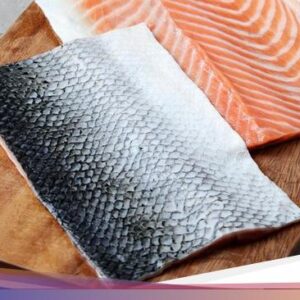Jakarta –
The Ornish Diet is a popular type of diet for weight loss. What are the rules and food menus consumed by this dieter? Check out the explanation below.
Quote Livestrong (6/12), in simple terms the Ornish diet is a low-fat vegetarian diet that focuses on the intake of whole and natural foods. This diet also requires the perpetrator to limit the intake of ultra-processed food products.
This diet was initiated by Dean Ornish, a health expert who researches the impact of changes in diet and lifestyle. He created the Ornish Lifestyle Medicine program which is said to help reduce weight while treating heart disease, diabetes and prostate cancer.
ADVERTISEMENT
SCROLL TO CONTINUE WITH CONTENT
Diet Ornish requires practitioners to focus on consuming a variety of fruit, vegetables, whole grains, nuts, soy products, nonfat milk, egg whites and sources of omega 3 fatty acids.
Also on the Ornish diet, a good source of carbohydrates is recommended. This is accompanied by consumption of healthy fats, the majority of vegetable protein, and foods rich in protective compounds such as vitamins, minerals and antioxidants.
General rules in the Ornish diet
 The Ornish Diet prioritizes the consumption of plant-based foods. Photo: Getty Images/iStockphoto/Tatyana Berkovich The Ornish Diet prioritizes the consumption of plant-based foods. Photo: Getty Images/iStockphoto/Tatyana Berkovich |
The Ornish Diet bases its rules on the Ornish Lifestyle Medicine Dietary Guidelines. The contents include:
1. Consume mostly plant foods in their original form
2. Limit consumption of “bad” carbohydrates
3. Calorie intake from fat is less than 10 percent
4. Consume mostly plant protein
5. Limit sodium intake
On the Ornish diet there are also rules regarding caffeine consumption. Coffee and tea are options if a person is used to consuming caffeine and tolerates it well. Limit coffee consumption to 1 cup per day and black tea to 2 cups per day.
Another rule that is also important in diet Ornishes are:
1. Calories are not limited, unless the dieter wants to lose weight
2. Consume small portions of food regularly throughout the day. This is to maintain energy stability and avoid excessive hunger
3. Keep your cholesterol intake to 10 milligrams or less per day
4. Choose low-fat dairy products (no more than 2 servings per day) and you can consume egg whites
5. Limit your intake of added sugar, no more than 2 servings per day
6. Low fat or nut foods should be kept to no more than 3 servings per day
7. Consumption of nuts is allowed in small portions such as 5 almonds, 9 pistachios and 2 cashews
8. Alcohol may be consumed but is not recommended. If you consume it, limit it to 1 serving per day






